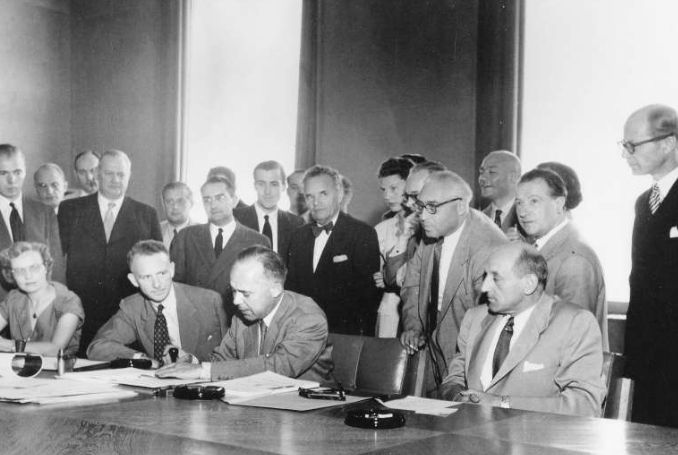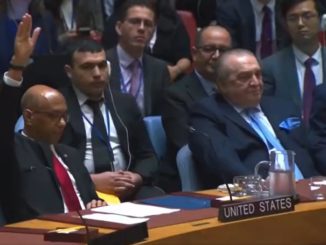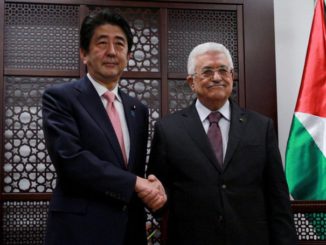
The Convention Relating to the Status of Refugees, the international treaty on the protection of refugees, has been signed by 148 countries and is the chief legal protection for refugees around the world.
The premise of the Refugee Convention is simple: if you meet the Article 1 definition of a refugee, you are entitled to a certain bundle of rights. The exceptions to this definition are extremely limited, only including those who voluntarily reestablish national protection, serious criminals (usually on the scale of war criminals), and, shockingly, Palestinians.
Palestinians Singled Out
You will not find the term “Palestinian” in the Refugee Convention. Instead, Article 1(D) just says “This Convention shall not apply to persons who are at present receiving from organs or agencies of the United Nations other than the United Nations High Commissioner for Refugees protection or assistance.”
While the diplomats that created the Convention may have been cagey about explicitly naming the Palestinians in the Convention itself, the recorded negotiations leave little doubt that Article 1(D) excludes Palestinians and Palestinians alone. Courts around the world have also unanimously interpreted Article 1(D) to be the Palestinian exclusion provision.
Why were Palestinians excluded from the Refugee Convention? The creation of the state of Israel had displaced thousands of native Palestinians, placing them in conditions that could only be commonly understood as those of refugees. In fact, forced into tent cities by an authoritarian regime, it would seem that many Palestinians would be the quintessential refugees the Refugee Convention was designed to protect.
First, the Refugee Convention was created in 1951, and the primarily European delegations were thinking about refugees in the wake of the devastation of Europe during World War II, not the Middle East. It was only in 1967 that the Protocol was passed that expanded the definition to not just cover Europeans, but anyone meeting the terms of the Convention’s definition.
Second, many Arab countries did not want Palestinians included in the Refugee Convention since it would impose an obligation on Palestine’s neighbors, those same Arab countries, to provide for them and it would lower the visibility of the Palestinian issue. Finally, the Palestinian leaders themselves were opposed to including Palestinians as refugees. Providing refugee benefits for Palestinians would likely lead to a large diaspora from Palestine, which would ruin any chance of creating an independent Palestine, let alone restoring a Palestine in full in place of nascent Israel.
Enter Mostafa Bey
It seemed that the only friend of the Palestinians at the conference that drafted the Refugee Convention was the Egyptian delegate, Abdel Monem Mostafa Bey. Mostafa Bey foresaw that international bodies would likely not solve the problem of the Palestinians. The “present situation of [Palestinian] refugees was a temporary one.”
Mostafa Bey introduced an amendment to the exclusion of Palestinian refugees. His amendment stated that Palestinians would automatically (ipso facto) come under the scope of the Refugee Convention if the United Nations bodies providing protection and assistance to the Palestinians ceased to function. This would mean that the Palestinians would not have to go through the usual Article 1 definition determination to see if they were refugees, but would automatically be considered refugees under the Convention. However, the ipso facto clause would not apply if the United Nations had definitively settled the Israel-Palestine question.
His amendment was approved and is now enshrined as the second half of Article 1(D):
“When such protection or assistance has ceased for any reason, without the position of such persons being definitively settled in accordance with the relevant resolutions adopted by the General Assembly of the United Nations, these persons shall ipso facto be entitled to the benefits of this Convention.”
As Mostafa Bey said afterward,
“It was only right and proper that, as soon as the Palestine problem had been settled and the refugees no longer enjoyed United Nations assistance and protection, they should be entitled to the benefits of the Convention.”
The two organizations providing aid to the Palestinians in 1951 were the United Nations Conciliation Commission for Palestine (UNCCP) and the United Nations Relief and Works Agency (UNRWA). UNCCP effectively ceased to function shortly after the Refugee Convention was signed after failing in its mission to peacefully resolve the Palestinian-Israeli conflict, but UNRWA has continued down to 2019.
However, there was a very real chance that UNRWA would not be able to provide assistance just two years ago. In 2017, the U.S. Trump Administration pulled its funding from UNRWA, despite having been the primary financier of the organization since its founding seventy years before. In order to not trigger the ipso facto provision of the Refugee Convention, Europe scrambled to collect the funds to keep UNRWA operating and kept the Palestinian exclusion alive, at least for now.
Of course, the Israel-Palestine conflict has not been resolved, and both formal conflicts such as the 1967 Six-Day War and Israeli mistreatment of Palestinians led to even greater numbers of Palestinians being displaced. So while Mostafa Bey’s compromise solution is still a valuable asset, under the terms of Article 1(D) it has yet to be realized.
However, an Australian court did rule that Article 1(D) requires both UN protection and assistance. Only UNCCP provided protection and UNRWA only offers assistance, so, therefore, the ipso facto clause is now in force. The overwhelming majority of the world’s courts have ruled that the Palestinians just need protection or assistance, not both, so UNRWA’s continuing existence is adequate to preserve Article 1(D) and not trigger the ipso facto clause for the majority of countries.
Interpreting Article 1(D)
The drafting of the first paragraph of Article 1(D) may itself provide a numerical and time limit on which Palestinians are excluded under Article 1(D). The text says those “who are at present” receiving protection or assistance from UNRWA.
Since the Convention was enacted in 1951, it would only encompass those Palestinians who were eligible for UNRWA assistance in 1951, which would be “any person whose normal place of residence was Palestine during the period 1 June 1946 to 15 May 1948 and who lost both home and means of livelihood as a result of the 1948 conflict.”
Under this interpretation, Article 1(D) will simply die when the last Palestinian eligible for UNRWA assistance in 1951 passes away.
Despite this approach being advanced by leading refugee law scholars such as James Hathaway, there is no guarantee that courts around the world will actually accept this. In El Kott v. Hungary, the Court of Justice of the European Union even rejected the ipso facto clause that is clearly in the Convention.
In the spirit of statutory interpretation, we must also remember that the Refugee Convention was drafted nearly seventy years ago. In 1951, the Israel-Palestine dispute was just a few years old, and a solution in the not so distant future seemed viable. The drafters would never have imagined that Palestine would still be an unresolved issue sixty-eight years later. British courts have even noted this in their legal opinions.
Mostafa Bey’s Legacy
Unlike many other international agreements, the Refugee Convention does not have an enforcement mechanism or a central international court. Instead, each court implements the Refugee Convention as it sees fit, sometimes even in contravention of the explicit terms of the Convention. This has led to a multitude of different interpretations on certain points. This will also likely be the situation if the ipso facto clause in Article 1(D) is triggered, as demonstrated by the El Kott case.
Nonetheless, Mostafa Bey’s brilliant introduction of the ipso facto clause still provides some protection for the Palestinians in an otherwise bleak legal landscape. It changed the situation from Palestinians getting only UNRWA help no matter what to being guaranteed UNRWA assistance or refugee status and its associated package of benefits. As shown by the European funding of UNRWA in 2017 and 2018, the threat of the ipso facto clause in Article 1(D) has at least encouraged countries to fund UNRWA and not merely let it disintegrate as UNCCP did.
If Article 1(D) will simply expire once those that had access to UNRWA assistance in 1951 pass away, the ipso facto clause may never come into effect. Nonetheless, Mostafa Bey’s legacy is making sure that Palestinians were provided with some international legal assistance and not entirely excluded from the protections of the Refugee Convention.
– Michael Goodyear is a J.D. Candidate at the University of Michigan Law School. He has an A.B. in History and Near Eastern Languages and Civilizations from the University of Chicago. He has been published in a variety of academic and general-interest publications, including Le Monde Diplomatique, Subaltern States, and the Michigan Journal of International Law.







